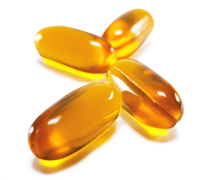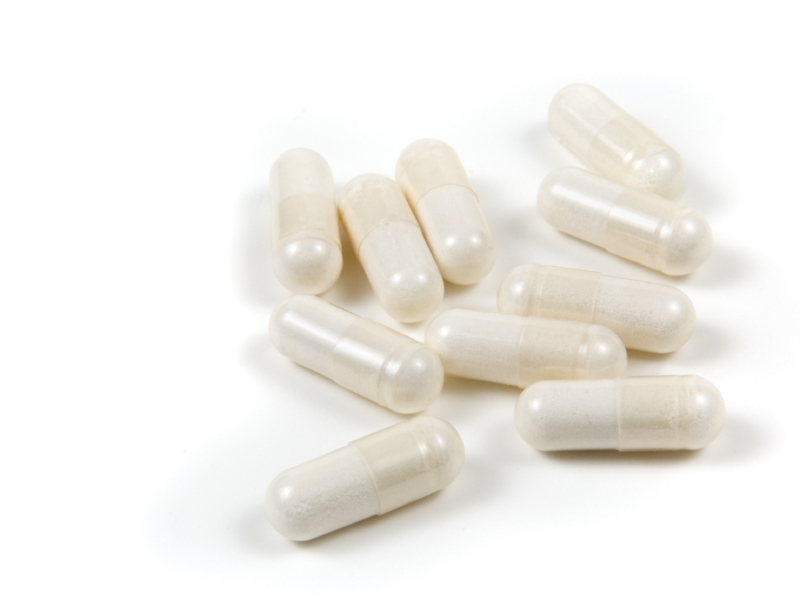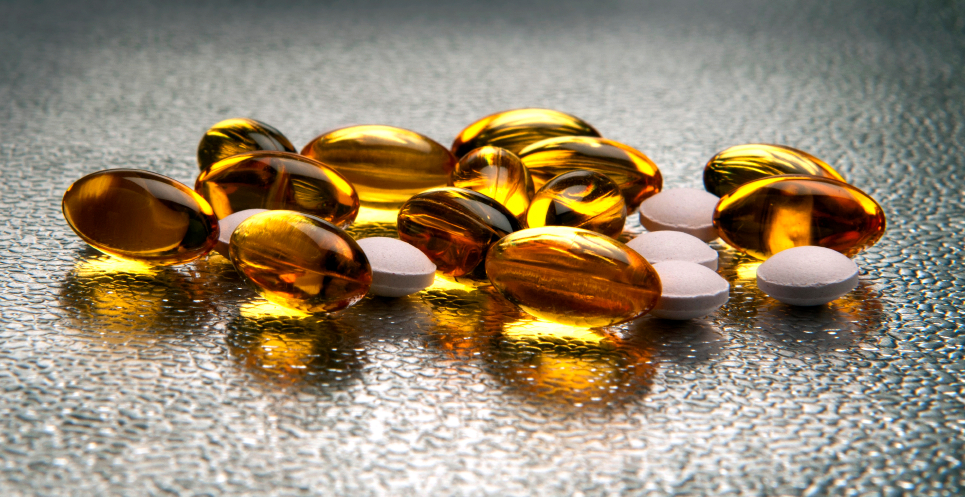Vitamin Methyl B12 Improved Autism Symptoms in Randomized, Placebo-Controlled Study
In a 2016 article in the Journal of the American Academy of Child and Adolescent Psychiatry, Robert L. Hendren and colleagues described an 8-week study in which the vitamin methyl B12 improved symptoms of autism spectrum disorders in children.
Fifty-seven children were randomized to receive either 75??g/kg of methyl B12 injected under the skin every three days or saline injections as a placebo instead. Methyl B12 improved the children’s autism symptoms compared to placebo. The improvements correlated with increases in levels of the amino acid methionine in the blood and improvements in cellular methylation capacity. Children with autism spectrum disorders have reduced ability to methylate (i.e. add methyl groups to) DNA. The methylation process helps convert the toxic amino acid homocysteine into beneficial methionine. The children who received methyl B12 showed a reduction in homocysteine and a better ratio of methionine to homocysteine.
Homocysteine is bad for the heart, for cognition, and for fetal development, while methionine can help improve depression and is important to many cellular reactions. Converting homocysteine to methionine requires vitamin B12 and folate, another B vitamin found in foods such as green vegetables and beans.
Taking folate supplements can help make antidepressants more effective by aiding the methylation process. However, some people have a common variation in the MTHFR gene that makes it difficult for the body to make use of folate. These people would need to take the nutritional supplement L-methylfolate instead of regular folate to help in the conversion of homocysteine to s-adenosylmethionine (SAMe, which acts as an antidepressant).
Vitamin D Has More Benefits Than Previously Thought
 Vitamin D has long been known as an important vitamin for bone health, preventing conditions such as osteoporosis and rickets. More recently, research suggests that vitamin D may also protect against conditions such as cancer, heart failure, diabetes, respiratory tract infections, and autoimmune disease.
Vitamin D has long been known as an important vitamin for bone health, preventing conditions such as osteoporosis and rickets. More recently, research suggests that vitamin D may also protect against conditions such as cancer, heart failure, diabetes, respiratory tract infections, and autoimmune disease.
Many Americans have low vitamin D or a vitamin D deficiency. The human body produces vitamin D in large amounts when the skin is exposed to ultraviolet B rays in sunlight. Vitamin D can also be absorbed from vitamin D–fortified foods such as dairy products, some orange juice, and cereals. Some foods such as fatty fish, beef liver, and egg yolks naturally contain some vitamin D, but it is difficult to get enough vitamin D just from consuming these foods.
Low mood or seasonal affective disorder (SAD), in which people feel depressed during winter periods of limited exposure to sunshine, have been linked to low vitamin D.
Other symptoms of low vitamin D vary but can include pain in the joints, bones, or muscles; fatigue; and breathing problems.
Editor’s Note: A few small studies have suggested that 1,500 IU per day of vitamin D supplements can help depressed mood, even in those with normal vitamin D levels. Several studies have indicated that children or adolescents with psychiatric disorders are especially likely to be vitamin D–deficient. Another study found that higher amounts of vitamin D (4,000 IU) could improve cognition in healthy volunteers more than lower doses could. Vitamin D also improved cognition in people with multiple sclerosis and in those with the autoimmune disease Hashimoto’s thyroiditis.
Meta-Analysis Finds Omega-3 Fatty Acids Do Not Reduce Cardiovascular Disease Risk
 In a 2018 meta-analysis published in the journal JAMA Cardiology, researcher Theingi Aung and colleagues found that across 10 studies including a total of 77,197 participants, omega-3 fatty acid supplementation did not reduce risk of coronary heart disease in people at high risk. This newer finding conflicts with a 2017 advisory from the American Heart Association that suggested omega-3 fatty acid supplementation might prevent cardiovascular disease.
In a 2018 meta-analysis published in the journal JAMA Cardiology, researcher Theingi Aung and colleagues found that across 10 studies including a total of 77,197 participants, omega-3 fatty acid supplementation did not reduce risk of coronary heart disease in people at high risk. This newer finding conflicts with a 2017 advisory from the American Heart Association that suggested omega-3 fatty acid supplementation might prevent cardiovascular disease.
When it comes to mood disorders, it has been similarly difficult to pin down whether omega-3 fatty acids are helpful. Data on omega-3 fatty acid supplements for the prevention of depression have been ambiguous, with small numbers of studies and variations in study design that make it difficult to draw strong conclusions about whether these supplements can improve or prevent depression.
A 2016 systematic review by Paola Bozzatello and colleagues in the Journal of Clinical Psychiatry found only seven studies of omega-3 fatty acid supplementation in bipolar disorder. The studies had small sample sizes and widely varying dosage parameters, so the evidence that can be drawn from them is not strong, but the review did find a modest benefit on bipolar depression (but not mania) when omega-3 fatty acids were added to a treatment regimen, compared to treatment as usual.
The same review found that studies of omega-3 fatty acid supplementation in unipolar depression also varied widely, and thus it was difficult to draw inferences from them. Some meta-analyses found no benefit to omega-3 fatty acid supplementation, while others suggested that omega-3s could improve depression. The review found that the type of omega-3 fatty acids used might matter. Supplementation with EPA seemed to improve depression more than supplementation with DHA. The review also cited a 2014 comprehensive meta-analysis by Giuseppe Grosso and colleagues in the journal PLoS One that analyzed the findings from 19 studies in people with depression or depressive symptoms. Grosso and colleagues found that people with more severe depression seemed to benefit more from omega-3s.
Preventing Illness in the Offspring of a Parent with Bipolar Disorder
A 2018 article by researcher Robert Freedman and colleagues in the American Journal of Psychiatry reported that prenatal nutritional supplements can reduce mental illness in at-risk offspring. The article made a good case for supplementation with folate, phosphatidylcholine, and vitamins A and D.
Here we describe some additional ways to minimize risk of mental illness in children who are at risk for bipolar disorder or other mental illnesses.
Some efforts at prevention can begin even before a child is conceived. Avoiding smoking or drinking alcohol and maintaining a nutritious diet to prevent inflammation and excessive weight gain before conception could reduce adverse epigenetic effects on the offspring. Epigenetics refers to environmental influences on gene transcription. The impact of life experiences such as a mother or father’s substance use is not registered in their child’s DNA sequence, but can influence the structure of the child’s DNA or its packaging.
Maternal good health and wellbeing during pregnancy has also been shown to improve neonatal health and functioning.
Once a child is born, they can be encouraged in healthy habits, including a nutritious diet, good sleeping habits, regular vigorous exercise, and mindfulness/meditation training (which pediatric psychiatrist James Hudziak has suggested should be universal).
For a child who is beginning to develop mood or behavioral symptoms, more intensive intervention may be prudent. Research supports the effectiveness of family interventions such as family-focused therapy (FFT) for youth with depression, cyclothymia, or bipolar disorder not otherwise specified (BP-NOS) and a family history of bipolar disorder. Researcher David J. Miklowitz described the effects of this intervention in a 2013 article in the Journal of the American Academy of Child and Adolescent Psychiatry.
Depression in children 3 to 6 years of age is as common as depression in older children (with rates around 1–2%), and robust improvements have been observed when families engage in parent child interaction therapy (PCIT) with a focus on emotional development. In PCIT, parents are coached while interacting with their children and encouraged to establish warm interactions while setting appropriate limits. In a study by Joan L. Luby and colleagues published in the American Journal of Psychiatry in 2018, using PCIT modified to include an emotional development component improved depression and associated symptoms in children aged 3 to 11, and it also improved mothers’ mood and behavior. Read more
Prenatal Prevention of Psychiatric Illness with Nutritional Supplements
 In a 2018 article in the American Journal of Psychiatry, researcher Robert Freedman and colleagues shared the results of a systematic review of data on nutritional supplements during pregnancy for the primary prevention of psychiatric illness in the child. Freedman and colleagues concluded that the evidence is robust that prenatal folic acid supplementation plus multivitamins not only can prevent birth defects such as cleft palate, spina bifida, and microcephaly, but also social withdrawal, decreased attention, and aggression at age 18 months. They wrote, “Supplements of up to 4 mg [of folic acid] before 12 weeks gestation have been found to be safe and effective.”
In a 2018 article in the American Journal of Psychiatry, researcher Robert Freedman and colleagues shared the results of a systematic review of data on nutritional supplements during pregnancy for the primary prevention of psychiatric illness in the child. Freedman and colleagues concluded that the evidence is robust that prenatal folic acid supplementation plus multivitamins not only can prevent birth defects such as cleft palate, spina bifida, and microcephaly, but also social withdrawal, decreased attention, and aggression at age 18 months. They wrote, “Supplements of up to 4 mg [of folic acid] before 12 weeks gestation have been found to be safe and effective.”
The effects of omega-3 fatty acid supplementation depended on when the supplements were taken. Taking omega-3 fatty acid supplements early in pregnancy was linked to an increase in schizophrenia and more symptoms of attention deficit hyperactivity disorder (ADHD) in the offspring. However, supplementation after 20 weeks of pregnancy decreased preterm delivery, low birth weight, and asthma.
As of 2017, choline supplementation during pregnancy is recommended by the American Medical Association. Their recommendation is based on research in which the choline precursor phosphatidylcholine (5,000-6,300 mg/day) was given to mothers beginning in the 18th week of pregnancy and continued in the newborn for two weeks to three months after birth in the form of 100mg of liquid phosphatidylcholine. This supplementation regimen normalized the P50 auditory evoked potential, a measure of inhibitory sensory gating that is abnormal in patients with schizophrenia and bipolar disorder and infants whose parents had psychosis, depression, or smoked (all risk factors for a later diagnosis of schizophrenia).
Healthy individuals show a reduced response to an auditory cue when it is repeated 50 milliseconds after the initial cue. In people with schizophrenia, response to the repeated cue is not suppressed. Not only did the P50 auditory evoked potential normalize with phosphatidylcholine supplementation, but at 3.5 years of age, those who received phosphatidylcholine supplements in utero and as newborns had fewer problems with attention and social interactions. The findings were even more robust in those with the CHRNA7 genotype (a genetic variation in the alpha 7 nicotinic receptor), which is a risk factor for schizophrenia.
Supplementation with vitamins A and D during gestation also decreased the risk for schizophrenia and autism spectrum disorders in offspring. Recommendations include Vitamin D at doses of 600 to 4,000 IU for pregnant mothers and 400 to 1,000 IU for infants. Because of potential toxicity, vitamin A should be limited to 8,000 units from diet and supplements combined. (Supplements typically contain 2,500 units.)
While there are some methodological limitations to the findings, Freedman and colleagues conclude, “As part of comprehensive maternal and fetal care, prenatal nutrient interventions should be further considered as uniquely effective first steps in decreasing risk for future psychiatric and other illnesses in newborn children.”
Editor’s Note: Given the high risk of psychiatric illness (74%) in the offspring of a parent with bipolar disorder and the finding of abnormal P50 auditory evoked potential in patients with bipolar disorder, the recommended nutritional supplements should be given special consideration during gestation of a child who has a parent with bipolar disorder. According to the 2018 article by Freedman and colleagues, this would include folate, phosphatidylcholine, vitamin A and vitamin D.
Antioxidant Supplement Coenzyme Q10 Looks Promising for Bipolar Depression
Coenzyme Q10 (CoQ10) is an antioxidant that occurs naturally in the human body, but its levels decline with age, medical illness, and depression. In a randomized, controlled trial that was published in the Journal of Clinical Psychopharmacology in 2018, researcher Maryam Mehrpooya and colleagues found that adding coenzyme Q10 supplements to a treatment regimen improved bipolar depression compared to adding placebo.
The pathophysiology of bipolar disorder involves mitochondrial dysfunction, oxidative stress, and inflammation, and coenzyme Q10 can affect all of these pathways. It is also neuroprotective, and may help prevent the degeneration of neurons in people with Alzheimer’s, Parkinson’s, or Huntington’s diseases.
The study included a final total of 69 participants who were randomly assigned to receive either 200 mg/day of coenzyme Q10 supplements or placebo in addition to their normal treatment regimen, which had been stable for at least two months at the time of the study. Participants’ bipolar depression was rated at the beginning of the study, after four weeks, and after eight weeks. At the eight-week mark, coenzyme Q10 showed a statistically significant benefit over placebo with a large effect size. Three participants who received coenzyme Q10 experienced full remission of their depression, and 72% of those in the coenzyme Q10 group improved compared to only 12% of those who received placebo.
The study had some limitations. It was small, and twenty participants dropped out of the study before its completion, which may have inflated the findings.
Previous research found that coenzyme Q10 had benefits in specific populations. In two non-blind studies (studies in which participants know that they are receiving the treatment in question rather than possibly a placebo), 29 older patients with bipolar disorder improved when taking 800 mg to 1200 mg/day of coenzyme Q10. A randomized, controlled trial of coenzyme Q10 in people with multiple sclerosis and depression found that 500 mg/day reduced fatigue symptoms and depression. Coenzyme Q10 has also improved well-being and energy in small, controlled trials in people with breast cancer, Gulf War veterans, and elderly populations.
Taking coenzyme Q10 is low-risk. It had no adverse effects in the study by Mehrpooya and colleagues. Gastrointestinal reactions are possible, but can be managed by taking coenzyme Q10 with food and spreading out dosing throughout the day. Insomnia is also possible, but is less likely when coenzyme Q10 is taken early in the day. One effect to note is that coenzyme Q10 can interact badly with the blood-thinner warfarin.
Editor’s Note: The study by Mehrpooya and colleagues is interesting. Another antioxidant, N-acetylcysteine (NAC), also took 2 months to work in trichotillomania and bipolar depression, so patients should be warned not to expect a quick response with either coenzyme Q10 or NAC. Other potentially useful supplements include: Vitamin D3 (1500–5000 IU/day), folate or L-methylfolate, and acetyl-L-carnitine. Acetyl-L-carnitine may work more quickly, based on its presumed mechanism (increasing the production of the inhibitory metabotrophic glutamate receptor mGluR-2, which inhibits glutamate release).
Nimodipine Decreases Frontal and Parietal Cortical Activity During Working Memory in Healthy Subjects
At a recent scientific meeting, researcher Kristin Bigos and colleagues described the effects of nimodipine, a treatment for brain hemorrhage, on the brain during working memory tasks. Nimodipine is a dihydropyridine L-type calcium channel blocker. Calcium channel blockers prevent calcium from entering cells in the heart and blood vessel walls, and they are often used to treat high blood pressure.
Nimodipine acts on the CACNA1C calcium influx gene. Certain genetic variations in this gene (particularly the rs1006737 A allele) have been linked to vulnerability to bipolar disorder, schizophrenia, depression, and autism. Carriers of the risk allele also have higher CACNA1C mRNA expression in the dorsolateral prefrontal cortex and exhibit more activity in the frontal and parietal regions of the brain during working memory tasks, suggesting inefficient brain processing in these regions. Bigos and colleagues found that 60mg/day of nimodipine decreased frontal and parietal cortical activity by 39.1% and 42.8%, respectively, during a working memory task, suggesting that nimodipine improved the efficiency of memory processing. Nimodipine’s positive effects were greater in those participants who had the CACNA1C risk allele.
Editor’s Note: Using a placebo-controlled off-on-off-on study design (meaning patients took placebo for a period, then nimodipine, then placebo again and nimodipine again), this editor (Robert M. Post), Peggy J. Pazzaglia and colleagues found that nimodipine had positive effects in both mania and depression in patients with bipolar disorder (described in the 2008 book Treatment of Bipolar Disorder: A Casebook for Clinicians and Patients by Robert M. Post and Gabriele S. Leverich). In a large randomized study of patients with bipolar disorder presented by Haroon R. Chaudhry at the 2010 meeting of the Society of Biological Psychiatry, lithium was associated with about a 50% response rate while the combination of lithium and nimodipine was associated with a 73% response rate.
It remains to be seen whether people with bipolar disorder who have the CACNA1C risk gene would respond better to nimodipine than those without the risk gene, and whether it would improve working memory more in the subgroup with the risk gene.
Ketamine May Enhance the Effects of Cognitive Training Therapy
Rebecca B. Price, a professor of Psychiatry and Psychology at the University of Pittsburgh, and colleagues reported at a recent scientific meeting that the combination of intravenous ketamine treatment and four days of cognitive training to enhance positive self-representations improved depression better than either intervention alone (IV ketamine plus a sham training or a non-medicated saline drip plus 4 days of cognitive work).
Price and colleagues suggested that priming brain plasticity with ketamine could enhance cognitive training focused on increasing positive self-representations. Psychologists have theorized that self-representations (or assessments of one’s strengths and other qualities) can be a resource that helps people cope with life stress.
Il-6 Inhibitor Sirukumab May Improve Anhedonia, But Not General Depression
 At a 2018 scientific meeting, researcher Giacomo Salvadore and colleagues reported that the drug sirukumab, a monoclonal antibody that targets the inflammatory marker Il-6 and that was originally developed to treat rheumatoid arthritis, did not have a statistically significant effect on overall depression compared to placebo. However, by the twelfth week of treatment, sirukumab did have a significant effect on anhedonia (loss of interest or pleasure in activities that one previously enjoyed).
At a 2018 scientific meeting, researcher Giacomo Salvadore and colleagues reported that the drug sirukumab, a monoclonal antibody that targets the inflammatory marker Il-6 and that was originally developed to treat rheumatoid arthritis, did not have a statistically significant effect on overall depression compared to placebo. However, by the twelfth week of treatment, sirukumab did have a significant effect on anhedonia (loss of interest or pleasure in activities that one previously enjoyed).
The degree of improvement in anhedonia was significantly correlated with patients’ baseline levels of the inflammatory marker CRP. Since the inflammatory marker that sirukumab targets, Il-6, is one of those most often elevated in depression, it appears that more study of sirukumab would be warranted.
Vitamin D3 Improves Depression in Older Adults
Researcher Negin Masoudi Alavi and colleagues reported in the journal Clinical Nutrition in 2018 that compared to placebo, 50,000 IU of vitamin D3 taken weekly for eight weeks improved depression in depressed patients over the age of 60.
Although the literature about vitamin D3’s effects on depression are mixed, a 2014 meta-analysis by Simon Spedding in the journal Nutrients found that in studies of vitamin D-deficient depressed participants whose vitamin D levels were restored to normal levels by the end of the study, vitamin D significantly improved depression. (Spedding attributed earlier mixed results to studies that did not clearly correct a vitamin D deficiency.) A 2013 study by Nayereh Khoraminya and colleagues in the Australian and New Zealand Journal of Psychiatry suggested that a 1500 IU dose of vitamin D3 combined with the selective serotonin reuptake inhibitor (SSRI) antidepressant fluoxetine improved depression more than fluoxetine plus placebo in depressed patients who were not necessarily deficient in vitamin D. Another study by Jacqueline A. Pettersen in the journal Experimental Gerontology found that in healthy adults, 4,000 IU of vitamin D3 improved cognitive functioning (namely visual memory) more than 400 IU.
Editor’s Note: Given these promising studies, the safety of D3, and fact that psychiatric patients are often deficient in vitamin D3, taking vitamin D3 supplements to improve depression might be worth trying.







